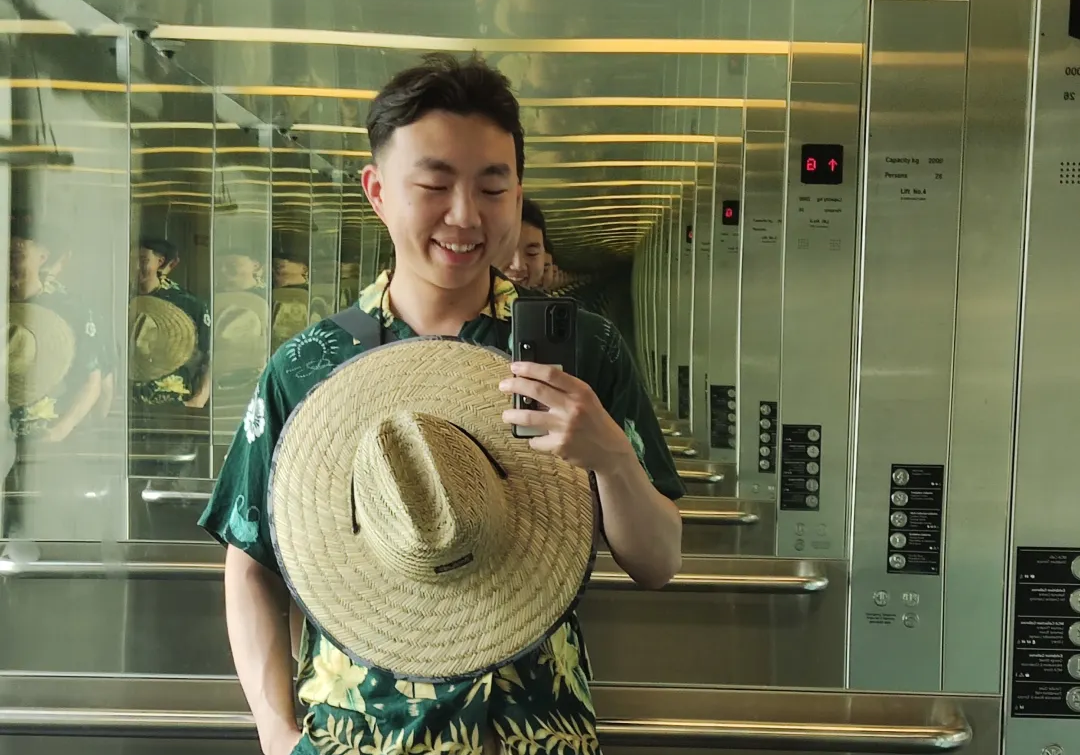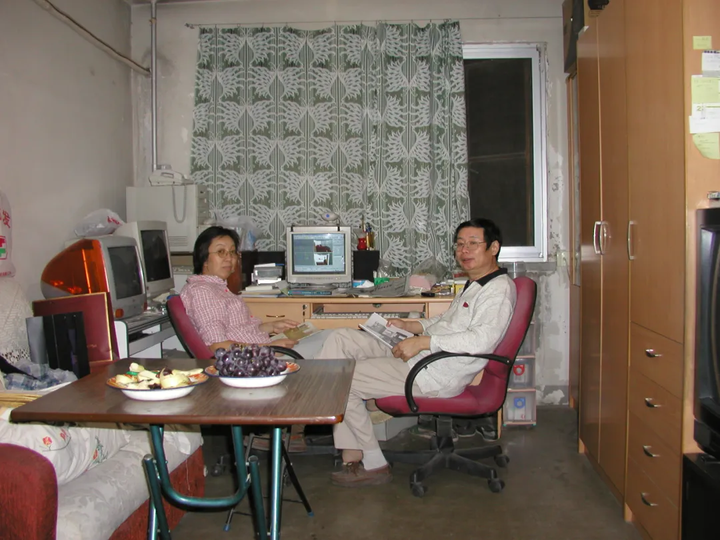A Chinese "Small Town Test Taker" Migrates to New Zealand to be Bus Driver at Low Cost

Staff Writer: Yima
Image Source: Supplied
Big Changes to New Zealand Immigration Policy In April: From April 7, Bus and Truck Drivers Applying for Accredited Employer Work Visas (AEWV) Will No Longer Be on the Green List.
This means that the fast-track route to immigrating to New Zealand by driving buses has been blocked.
We interview a young man who is already working as a bus driver in New Zealand. He shares his story of "getting in just before the policy change, migrating to New Zealand at a low cost within a year."
When a "Small Town Test Taker" Decides to Go Abroad
On Gong's social media profile, his first label is "former Small Town Test Taker".
"A small-town upbringing, focused on studying hard, excelling in exams but lacking broader vision and resources"—this is how people describe "Small Town Test Taker".Until he was 22, this description fit Gong.
During his junior year of college, his life took a turn.That year, despite his excellent academic performance, he chose to give up the opportunity to be guaranteed a place in graduate school.
In his senior year, like other law students, Gong passed the bar exam. Following the traditional script, after graduating, he would have either found an internship at a law firm or joined the civil service exam race to secure a government job.
But Gong became the "black sheep" of the group and strayed from the herd.He mapped out a new path for himself—going abroad.

Law Student Moves to Guangzhou Become a Traditional Chinese Medicine Apprentice
Many students choose to go abroad for a master’s degree after completing their undergraduate studies. However, for Gong, who didn’t have much savings, this was too expensive, so he aimed to work abroad.
A Chinese law degree isn’t very useful abroad, so he considered learning a practical skill.Hearing that massage therapy is lucrative overseas, Gong became interested in learning massage.
He saw a job ad online for an apprentice position at a traditional Chinese medicine (TCM) clinic, which seemed like a good opportunity. Gong bought a train ticket and headed to Guangzhou alone.
Upon arriving at the clinic, he was shocked: to start working, he needed to pay 9,000 yuan(about 2000 NZD) in tuition, with the promise that they would recommend a job after training.
Feeling scammed, and with only 4,000 yuan(less than 1000 NZD) on hand, Gong gave up the opportunity.Since he was already in Guangzhou, he decided to look for work nearby.
Still determined to learn massage, Gong applied to several places, but since he had no experience, and with a law degree, most HR departments rejected him.He found few job listings online, so he began creating his own opportunities.Gong searched for nearby massage shops on Meituan, contacting each one to ask if they were hiring.

Finally, his persistence paid off, and a TCM clinic gave him an interview opportunity. He passed the interview and officially became a TCM apprentice.
To save money, he slept in the clinic for six months.

Using a Working Holiday Visa to Fulfill His Dream of Going Abroad
While working as a TCM apprentice, Gong learned about New Zealand’s working holiday visa and applied for a spot.

New Zealand only issues 1,000 working holiday visas to Chinese citizens annually, and applicants need to “snatch” one as soon as applications open.
Gong was fortunate to secure a visa, becoming one of the 1,000, marking the beginning of his journey abroad.After receiving his visa, Gong left the clinic and bought a plane ticket from Guangzhou to Auckland.
When he landed in Auckland, he had only 4,000 yuan (about 900 NZD) in his pocket. He stayed in a hostel and began setting up for work by applying for a tax number and opening a bank account.
On the seventh day after landing, Gong found a job as a waiter, but the slow-paced New Zealand onboarding process took three weeks to complete. In the meantime, he had to live frugally.
New Zealand’s cost of living is very high, so Gong bought the cheapest food from supermarkets, mostly cooking pasta himself. When he craved variety, he would buy 5 NZD banana cake, which was high in calories and filling.

Though hostels were the cheapest accommodation option, they still cost about 40 NZD per night. Gong found a hostel where he could work in exchange for free accommodation, saving him that expense.
Barely scraping by, Gong made it to his first payday. By then, he had only 70 NZD left. When he received his paycheck of over 700 NZD, he was thrilled—it felt like the first step in realizing his dream of working abroad.

His shifts were mostly night shifts, from 8 PM to 4 AM, which were tough but provided steady income and a good work atmosphere. Gong stuck with the job for a long time.
Under normal circumstances, Chinese citizens on working holiday visas can only stay in New Zealand for one year, and each job can only last for six months. Therefore, most working holidaymakers take seasonal jobs, such as fruit picking on farms.
However, Gong entered New Zealand during the pandemic, when local labor shortages prompted the immigration office to extend visas for those meeting certain criteria and remove job time limits.
While this extension allowed Gong to stay longer, it wasn’t enough for someone who wanted to settle down and build a life abroad. His next goal became obtaining permanent residency.
Dream of Migrating to Australia Shattered
In Gong's original plan, New Zealand wasn’t his first choice for immigration, as he had a second "ticket."
While working in New Zealand, he was lucky enough to win a spot for an Australian working holiday visa (Australia issues about 5,000 such visas to Chinese applicants each year; applicants fill out the form online, and the immigration office selects winners through a lottery system).
At the time, his plan was to finish his working holiday in New Zealand and then fly to Australia to pursue a 491 visa (the 491 Skilled Regional Provisional Visa is a temporary Australian visa that allows applicants to apply for permanent residency after obtaining sponsorship from a regional area and passing a points-based test. The visa is valid for five years).
However, just as Gong bought his ticket and was set to fly to South Australia the next day, news broke that the bonus points for the South Australia region under the 491 visa had been canceled, effectively blocking his planned immigration route.
With the Australian path no longer viable, he turned his focus back to New Zealand, where he began researching immigration policies more seriously, looking for a feasible opportunity.

Extreme Move: Becoming a Bus Driver
While browsing immigration policies and job-related information, Gong came across content about bus drivers. He quickly sensed that this might be an opportunity.
At first, he didn’t seriously consider it, as he had driven less than 200 kilometers in total back in China and was still a inexperienced driver.
Moreover, since he was young and had only recently gotten his driver's license, he didn’t meet the New Zealand requirement of having a minimum of two years’ driving experience to become a bus driver. He had only obtained his Chinese driver’s license in June 2021.
However, to address the shortage of bus drivers, the New Zealand government had made it easier for bus drivers to apply for residency. Under this policy, qualified bus drivers who work for two years can submit an immigration application.
When this policy was announced, many foreigners rushed to apply, and by mid-2023, the bus driver job market was nearly saturated.
In June 2023, Gong finally reached the two-year mark with his driving experience and began working on obtaining a local New Zealand driver’s license, a requirement for bus driving.
He quickly found a driving instructor, took lessons, and passed the test, successfully obtaining his local driver’s license.Once all the conditions were met, he started looking for jobs.
As a new Chinese driver who had just received his local license, Gong faced a tough job market that was nearly saturated. He searched job postings over and over, tailoring his cover letters to meet the requirements, but all his emails seemed to disappear into a void. After multiple rejections, he started to lose hope, thinking,"Maybe there really is no opportunity left."
Before giving up, Gong made one last effort. Just like his job hunt in Guangzhou, he used a "foolish method"—searching bus company websites one by one, finding contacts, and sending emails to inquire about job opportunities. This approach was time-consuming, but he didn’t want to leave any stone unturned.
Finally, he received an interview opportunity. While some might call it luck, Gong's purposefulness and strong execution were evident during the interview. He wouldn’t give up until he achieved his goal.
During the interview, he faced competition from job seekers from all over the world. When asked why they wanted to apply for the job, many shared idealistic reasons such as "I love driving" or "I find this job meaningful." Gong, however, was brutally honest:"I want to immigrate through this job." His sincerity won over the interviewers, and he secured the position.
On August 14, 2023, Gong officially started his job as a bus driver.

In response to Gong sharing his bus driver story on his social media, some people joked,"I hope I never get on your bus".Because they thought Gong was not professiona.
However, New Zealand bus companies are not foolish—they don’t hand over the keys to unqualified drivers.
Before getting behind the wheel, new drivers undergo paid training. Most bus drivers have full licenses, but Gong was the only one in his group with a learner’s license and limited experience. As a result, the company trained him for three full months before allowing him to drive on his own.
Gong vividly remembers his first solo bus route, which traveled from East Auckland to the City and involved highway driving. Before starting, he meticulously studied the route and familiarized himself with the road conditions, eventually completing the trip safely.
The first step was the hardest, but once it was behind him, he knew where to go next. From then on, Gong began working full-time as a bus driver.
In addition to regular bus routes, Gong’s bus company also operates school buses and private tour buses, giving him the opportunity to drive different types of vehicles.
Being a bus driver isn’t an easy job. Gong works an average of five days a week, with each shift lasting about 10 hours. To prevent fatigue, drivers are required to take a three-hour break during their shift, which stretches the overall workday.
Driving requires full concentration, and drivers can’t engage in conversation, making it a rather solitary job.
Of course, there are also challenges. In certain areas, some passengers refuse to tap their cards after boarding, and Gong has even been threatened by passengers with unstable emotions.
Once, while waiting at a red light, a man suddenly approached and demanded that Gong open the doors, even though it wasn’t a designated stop. The man ignored Gong’s explanation and began yelling angrily, threatening, "If you don’t open the door by the count of three, I’m kicking it down!" He immediately started kicking the door, and Gong, left with no choice, opened it, advising him to "be careful."
However, there are also heartwarming moments.One busy afternoon, Gong was driving from Auckland City to the eastern suburbs when a Chinese auntie boarded at Newmarket. At the final stop, she started a conversation with Gong. After learning that he was a young Chinese driver, she enthusiastically praised him, saying, "You’re amazing, so young and driving so well!" The auntie worked at a Chinese restaurant and later gave Gong some food as a gift.
This gesture touched him deeply. While some people say,"Chinese people abroad cheat other Chinese people," most are kind and willing to help each other.
Most of people took the job as a means to immigrate, and since they share similar goals and circumstances, there’s a sense of mutual understanding and cooperation among colleagues.

Being the Architect of Your Own Life
Gong has now been working as a bus driver for eight months. If he sticks with it for another year, he will be eligible to submit his immigration application.
However, in April, the green immigration pathway for bus drivers has closed, meaning that future bus drivers can no longer immigrate through this route.
Gong's extreme effort secured him a job and put him on the path he wanted to take.
Reflecting on his transformation over the past year, Gong used the words "turning point" and "enlightenment." He said he has always believed in "doing your best and leaving the rest to fate," striving to do everything within his power.
After going through these experiences, he has become more indifferent to life’s changes, knowing that the only constant is change. The best he can do is to adapt to whatever comes his way.
With a stable job and a clear immigration direction, Gong spends his free time learning and creating. He regularly schedules coffee chats with people from different fields and creates short videos to post online, keeping his inspiration flowing. His journey is far from over.
On social media, Gong goes by the name "Black-Haired Yang Weili," a character from the Japanese novel Legend of the Galactic Heroes.
In the book, Yang is described as "a calm scholar-like 29-year-old with black hair and black eyes, whose demeanor is more suited to a scholar than a military man."
Yang Weili is a character with great tactical wisdom and strategic foresight, and it’s clear that Gong admires him.

In this 24-year-old young man, there are traces of Yang Wen-li’s influence. Gong sets goals, finds solutions calmly and strategically, and gives his all to achieve them.
Onlookers who hear about Gong’s journey might attribute his current life to "luck." Gong, with his bright smile and cheerful demeanor, doesn’t deny it.
Because he knows that Lady Luck favors those who are sincere and hardworking.



